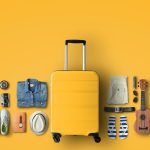Before Your Trip to Indonesia
Indonesia, an archipelago of over 17,000 islands, is a destination teeming with natural wonders, diverse cultures, and a rich history. Before you embark on your adventure, it’s crucial to prepare adequately to ensure a smooth and enjoyable trip. Researching the local customs, understanding the climate, and knowing what documents you need are key steps in your preparation. Proper planning will help you maximize your experience and avoid common travel pitfalls.
The Weather in Indonesia
Indonesia’s climate is tropical, characterized by high humidity and temperatures that range from 25°C to 30°C (77°F to 86°F) year-round. The country has two main seasons: the dry season and the rainy season. The dry season, which lasts from May to September, is the best time to visit for outdoor activities and beach vacations. The rainy season, from October to April, can bring heavy rainfall and high humidity, particularly in the afternoon and evening.
The weather can vary significantly depending on the region. For instance, Bali and Java experience slightly different weather patterns compared to Sumatra or Papua. During the rainy season, some remote areas may become difficult to access due to flooding or poor road conditions. It’s always a good idea to check the local weather forecast regularly and pack accordingly. Lightweight, breathable clothing is recommended year-round, but be prepared for sudden downpours during the rainy season with a reliable raincoat or umbrella.
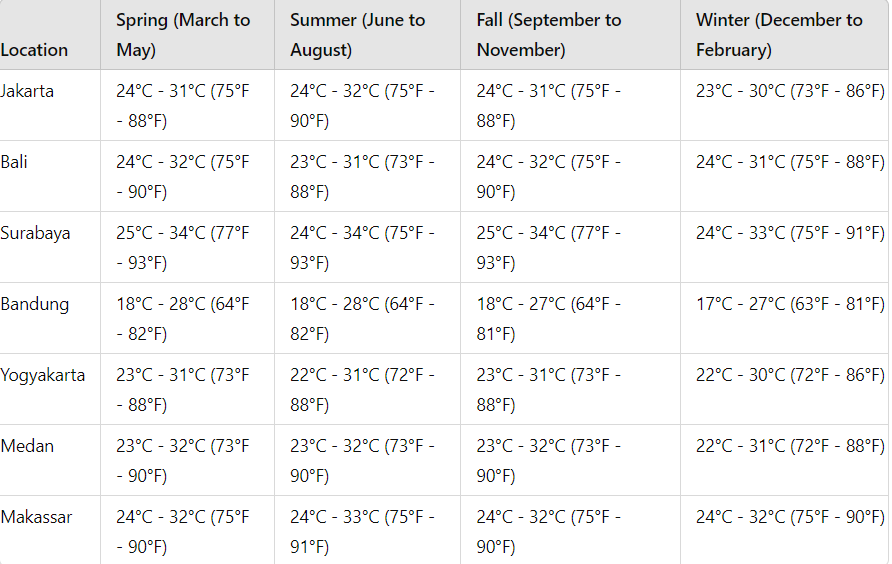
How to Dress in Indonesia? – Seasonal Considerations
Summer
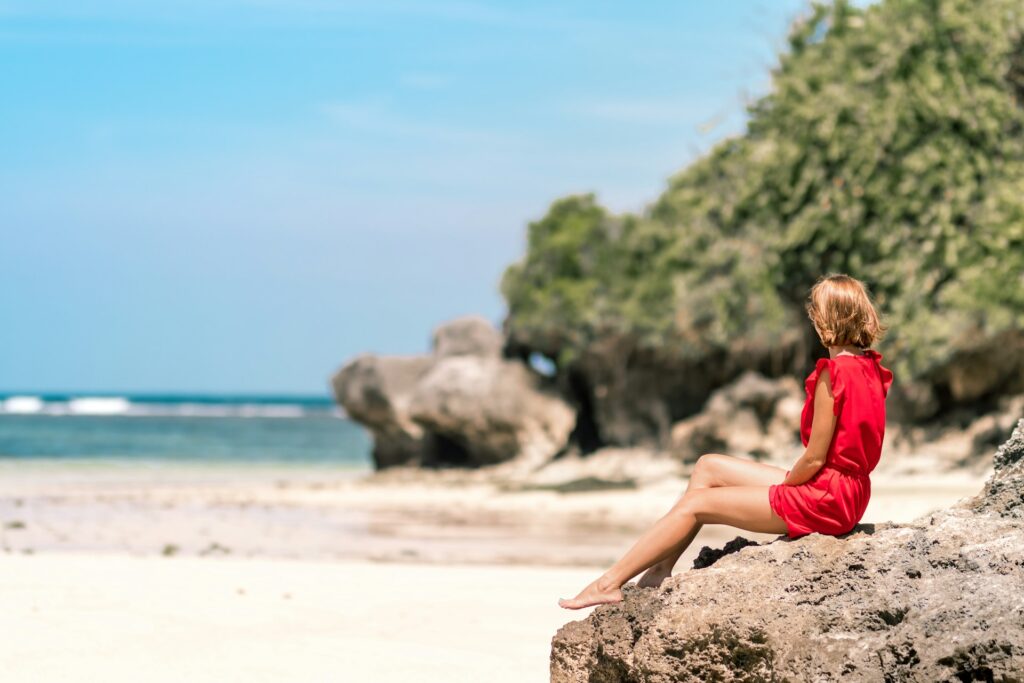
In the dry season, which coincides with the summer months, lightweight and breathable fabrics like cotton and linen are ideal to keep you cool. Loose-fitting clothes are recommended to combat the heat and humidity. Sunscreen, sunglasses, and a wide-brimmed hat are essential to protect yourself from the intense sun. Don’t forget to pack a swimsuit if you plan on enjoying Indonesia’s stunning beaches.
Fall
As the rainy season begins in the fall, it’s wise to carry a light rain jacket or an umbrella. The temperatures remain warm, but the increased humidity and frequent rain showers require quick-drying clothing. Footwear that can handle wet conditions, such as waterproof sandals or shoes, will also be beneficial. Layering can help you stay comfortable as you move between air-conditioned indoors and the humid outdoors.
Winter
Winter in Indonesia is characterized by the peak of the rainy season. While temperatures remain warm, the frequent and heavy rains mean you’ll need waterproof gear. A sturdy raincoat, waterproof footwear, and quick-drying clothes are essential. Despite the rain, it’s still important to dress lightly and comfortably. A foldable umbrella can be a practical addition to your daypack.
Spring
As the rainy season tapers off in the spring, the weather becomes more predictable with occasional showers. Light, breathable clothing remains suitable, but keeping a rain jacket handy for the odd shower is advisable. The temperatures can still vary throughout the day, so layering is a good strategy to stay comfortable. The return of more consistent sunshine also means you’ll need your sun protection gear.
The Currency in Indonesia
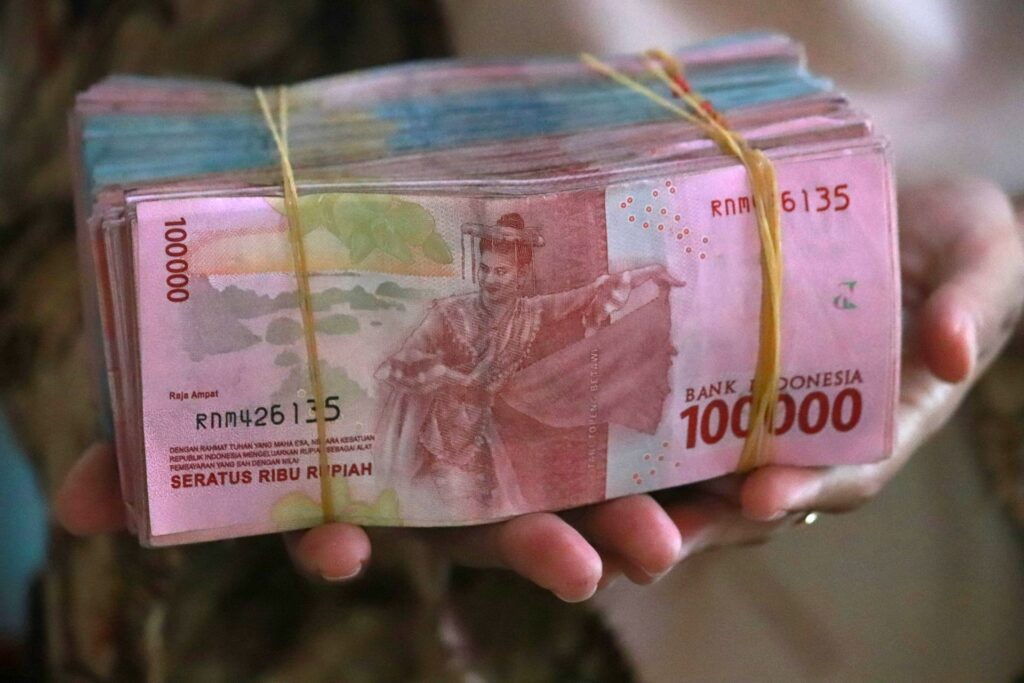
The currency in Indonesia is the Indonesian Rupiah (IDR), denoted by the symbol Rp. Banknotes are available in various denominations, ranging from 1,000 to 100,000 Rupiah, while coins come in smaller denominations. When you arrive in Indonesia, it’s essential to have some local currency on hand for small purchases, as cash is commonly used, especially in rural areas and smaller towns. Credit cards are widely accepted in major cities and tourist destinations, but having cash is always a good idea for markets, street vendors, and small businesses.
Which Currency Can Tourists Use in Indonesia?
The official currency in Indonesia is the Indonesian Rupiah (IDR). While major tourist areas might accept US Dollars or Euros, it’s more practical and often cheaper to use IDR for all transactions. Credit cards are widely accepted in larger hotels, restaurants, and shops, but it’s always good to have some cash for smaller establishments, markets, or rural areas.
Where to Exchange Money in Indonesia
You can exchange money at banks, authorized money changers, and some hotels. Airports also have exchange counters, but they often offer less favorable rates. It’s recommended to use official exchange services to avoid counterfeit currency. When exchanging money, ensure you receive small denominations, as these are more convenient for everyday purchases.
Tips for Exchanging Money in Indonesia
When exchanging money, always check the current exchange rate to ensure you’re getting a fair deal. Count your money carefully before leaving the counter to avoid any discrepancies. It’s also wise to keep your exchange receipts in case you need to change money back before leaving the country. Using ATMs that accept international cards can be convenient, but be aware of potential fees and withdrawal limits.
The Language in Indonesia
The official language of Indonesia is Bahasa Indonesia, a standardized form of Malay used in government, media, and education. With over 700 languages spoken throughout the country, Bahasa Indonesia serves as a unifying language for diverse linguistic communities.
In tourist areas like Bali, Jakarta, and Yogyakarta, English is widely spoken, especially in hotels, restaurants, and attractions. However, outside these areas, English might not be as common. Learning a few basic phrases in Bahasa Indonesia can greatly enhance your travel experience and show respect for the local culture. Phrases like “Selamat pagi” (Good morning) and “Terima kasih” (Thank you) can be very useful. A small phrasebook or translation app can help you navigate interactions with locals who do not speak English.
The Necessary Documents and Emergency Contacts
Visa and Passport for Indonesia
Ensure your passport is valid for at least six months from your date of entry. Depending on your nationality, you might need a visa to enter Indonesia. Some nationalities can obtain a visa upon arrival, while others need to apply in advance. Always check the latest visa requirements before you travel.
Travel Insurance
You must have travel insurance with a minimum medical, evacuation and repatriation coverage of US$50,000 covering all applicable dates of travel with the Tour Operator. This insurance must cover personal injury and emergency medical expenses. On the first day of each Tour, a representative of the Tour Operator will verify that you have sufficient insurance in place. You are strongly recommended to extend your coverage to include cancellation, curtailment, and all other expenses that may arise as a result of loss, damage, injury, delay or inconvenience while traveling. You acknowledge that insurance coverage is not included in the cost of any Tour offered by the Tour Operator, and you are required to obtain separate coverage at an additional cost. It is your responsibility to ensure that you have sufficient coverage and comply with the terms of the applicable insurance plans. You are responsible for advising your insurer of the type of travel, destination(s) and activities included in your booking so that the insurer may provide appropriate coverage.
Travel Vaccines for Indonesia
Consult your doctor about recommended vaccines well in advance of your trip. Common vaccinations for Indonesia include hepatitis A and B, typhoid, and possibly malaria, depending on the regions you will visit. Make sure your routine vaccinations, such as measles, mumps, rubella, and tetanus, are up to date.
Essential Emergency Numbers in Indonesia
Keep a list of essential emergency contacts, including the local embassy, local emergency services;
- Police: 110
- Ambulance: 118
- Fire Department: 113 or 1131
Vegetarian, Vegan, and Gluten-free Eating in Indonesia
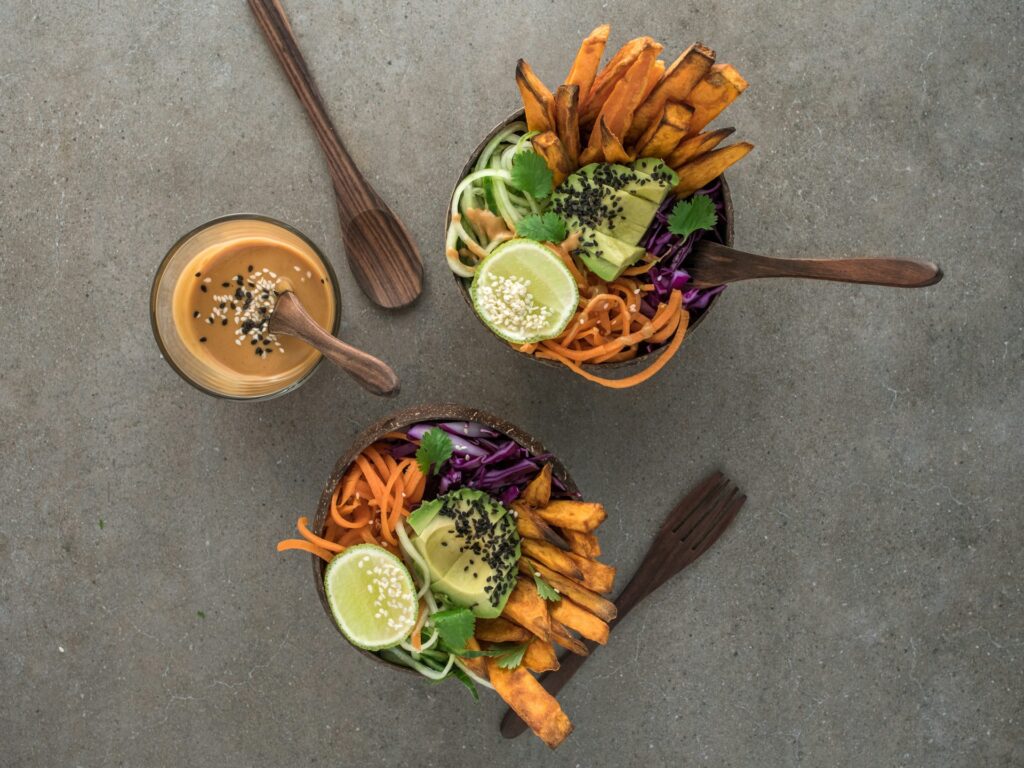
Indonesia offers a variety of food options suitable for vegetarians and vegans. Traditional dishes like gado-gado (vegetable salad with peanut sauce) and tempeh (fermented soybean cake) are popular choices. Additionally, tofu-based dishes are widely available and delicious.
However, gluten-free options might be less common, so it’s important to research and plan ahead. Informing restaurants of your dietary needs in Bahasa Indonesia can be helpful. Phrases like “Saya tidak makan gluten” (I don’t eat gluten) and “Saya vegetarian” (I am vegetarian) can aid in communication. Major cities and tourist areas often have restaurants that cater to dietary restrictions, but in rural areas, options may be limited.
Carrying gluten-free snacks and researching gluten-free-friendly restaurants in advance can ensure you have safe and satisfying dining experiences. With a little preparation, you can enjoy the rich and diverse culinary landscape of Indonesia while adhering to your dietary preferences.
Do’s and Don’ts in Indonesia
Do’s
- Do dress modestly, especially when visiting religious sites. Cover your shoulders and knees to show respect.
- Do use your right hand for eating and giving/receiving items, as the left hand is considered unclean.
- Do Carry Small Change, Many small businesses and street vendors might not have change for large bills.
- Do Bargain Politely in Markets, Haggling is a common practice in local markets. Engage in polite negotiation to get the best prices, but always do so with a smile and respect.
- Do Try Local Food: Indonesia has a rich culinary heritage. Be adventurous and try local dishes like nasi goreng (fried rice) and sate (skewered meat). It’s a great way to experience the culture.
- Do learn a few basic phrases in Bahasa Indonesia to show respect and make connections with locals.
- Do respect local customs and traditions and be mindful of local norms and behaviors.
Don’ts
- Don’t touch someone’s head, as it is considered sacred in Indonesian culture.
- Don’t Enter Homes or Temples with Shoes On, Always remove your shoes before entering someone’s home or a place of worship. This practice is a sign of respect in Indonesian culture.
- Don’t Touch People of the Opposite Sex in Public, Public displays of affection are generally frowned upon. It’s best to avoid touching or hugging people of the opposite sex in public places.
- Don’t Point with Your Finger, Pointing directly at people or things with your finger can be considered impolite. Use your thumb or the entire hand to gesture instead.
- Don’t raise your voice or lose your temper in public, as it is seen as disrespectful and rude.
What to Pack for Indonesia?
Travel Adapter for Indonesia
Indonesia uses type C and F plugs, with a voltage of 230V. Ensure you have the appropriate adapter for your devices. Type C plugs have two round pins, while type F plugs also have two round pins and are known as “Schuko” plugs. Both are common in many European countries.
A universal travel adapter can be very useful if you plan to visit multiple countries. These adapters can accommodate various plug types, ensuring you can charge your devices no matter where you are. Additionally, check if your devices are dual voltage (110V-240V) to avoid needing a voltage converter. Most modern electronics, like smartphones and laptops, are dual voltage, but it’s always good to verify. By preparing with the right adapter, you’ll keep your devices charged and ready throughout your trip.
Wifi Access and Mobile Connectivity in Indonesia
In Indonesia, wifi is widely available and accessible in most hotels, cafes, and restaurants, especially in major cities and popular tourist destinations. You’ll find that many establishments offer free wifi to their customers, which can be a great way to stay connected, share travel updates, and navigate your way around.
However, connectivity can be more limited in remote or rural areas. In these regions, you may encounter slower internet speeds or less reliable connections. To ensure you have reliable internet access throughout your trip, consider purchasing a local SIM card upon arrival. Local SIM cards are relatively inexpensive and provide better mobile connectivity compared to international roaming, which can be costly.
SIM cards can be easily bought at the airport upon your arrival or at local convenience stores throughout Indonesia. They typically offer a range of data plans, so you can choose one that suits your needs. Activating a local SIM card is usually straightforward, and many stores can assist with the setup. Having a local SIM card will help you stay connected, make local calls, and access the internet with greater ease during your travels.
In Your Suitcase
- Lightweight clothing suitable for warm weather, such as shorts, t-shirts, and sundresses.
- Rain jacket and waterproof footwear for the rainy season.
- Sunscreen, sunglasses, and a hat to protect yourself from the sun.
- Basic first-aid kit and necessary medications, including any prescription medicines.
- Swimwear for beach visits or hotel pools, as many areas have beautiful beaches or swimming facilities.
- Comfortable walking shoes for exploring cities and sightseeing. Choose shoes that are breathable and supportive for long periods of walking.
In Your Daypack
- Refillable water bottle to stay hydrated throughout the day.
- Snacks for long journeys or when local food options are limited.
- Travel guidebook and map to help navigate and plan your activities.
- Portable charger and travel adapter to keep your devices powered on the go.
- Rain poncho or compact umbrella to stay dry during unexpected showers, especially in rainy season.
- Travel-size toiletries like hand sanitizer, facial tissues, and lip balm for convenience during day trips.







